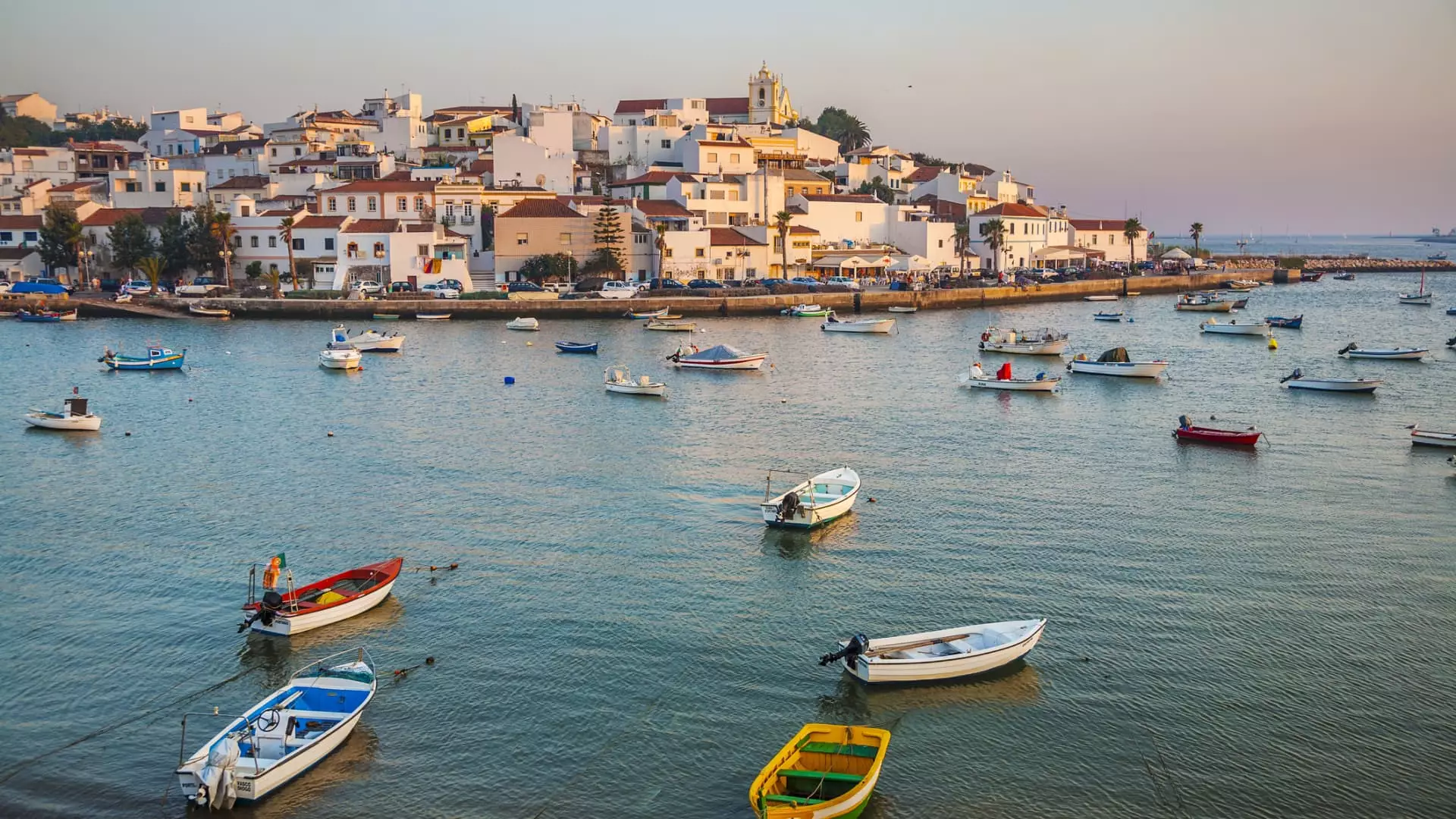In a landscape where political instability looms larger than ever, a notable number of affluent Americans are contemplating the prospect of relocating overseas. The impending national elections have ignited a surge in interest regarding international living, as evidenced by the heightened activity among immigration attorneys catering to high-net-worth individuals. The underlying fears of social unrest and potential violence, regardless of election outcomes, have prompted many wealthy citizens to explore options for second passports and long-term residencies in foreign lands.
Recently, immigration experts have reported a stark uptick in inquiries from wealthy clients regarding international migration services. Dominic Volek, of Henley & Partners, describes the current demand as unprecedented. Interestingly, American clients have now emerged as the largest demographic seeking overseas solutions, highlighting a growing trend. A reported 30% increase in Americans considering relocation has prompted a reevaluation of priorities and concerns in wealth management.
Younger Generations and the Allure of Global Citizenship
A significant aspect of this demographic shift is the responsiveness of younger millionaires, particularly those aged 18 to 29. A recent survey from Arton Capital highlights that 64% of this age group expresses keen interest in acquiring golden visas through investment opportunities abroad. Young affluent individuals are increasingly recognizing the benefits of diversifying not just their financial portfolios, but their personal and political environments as well. This desire for global citizenship goes beyond the traditional motivations around taxes or retirement — it signifies a proactive approach to uncertainty in their homeland.
The trend towards seeking second residencies has been on the rise since the onset of the COVID-19 pandemic. Factors such as better quality of life, proximity to family, and affordable living costs are often described as appealing. However, it is clear that the political climate has magnified this pursuit; the anxiety surrounding American governance often drives well-off individuals towards a “Plan B” — an escape route that minimizes their risk in an unpredictable world.
New Motivations for Migration: Politics, Violence, and Economic Concerns
Traditionally, affluent Americans considered relocation due primarily to tax advantages and economic opportunities. But as noted by David Lesperance from Lesperance and Associates, the motivations have shifted dramatically. Political unrest, fears of violence, and societal issues have become predominant driving forces behind the growing exodus. Many affluent individuals are expressing concerns about the direction of the United States, whether it be the implications of Trump’s potential victory or Harris’s tax proposals.
Moreover, additional societal issues—such as mass shootings, rising crime rates, and an increase in xenophobia—have further compounded anxiety and spurred the wealthy towards overseas options. It’s a reflection of modern apprehensions: a growing realization that citizenship may no longer guarantee safety or stability. For many, diversifying their national affiliations appears to be insurance against an increasingly polarized society.
Exploring specific national destinations, Europe tops the list for disenfranchised affluent Americans. The allure of Mediterranean locales such as Portugal, Malta, Spain, and Greece continues to accelerate. Accessible citizenship programs, like those that offer residency in exchange for property investment, fuel this growing movement. However, potential residents must remain wary of evolving regulations; many European nations are tightening passport and residency laws in response to increased foreign inflows.
While Portugal has experienced backlash from existing citizens due to the surge in foreign investments, Italy has adjusted its tax structures to accommodate wealthy foreigners. Despite challenges, Malta remains a sought-after destination due to its investment citizenship program, which appeals to American millionaires looking to augment their mobility within the European Union.
In parallel, Caribbean nations are capturing the attention of wealthy individuals keen on obtaining alternative passports. Countries like Antigua and Barbuda offer pathways to citizenship through real estate investments, which further enhances their attractiveness. Moreover, those with ancestral ties to Italy or Ireland are increasingly exploring lineage citizenship, which typically requires a simpler and less costly process.
While the interest in relocating abroad continues to grow, the logistics of immigration must be taken into account. With an influx of new applicants and stringent background checks, the timeline for obtaining residency or citizenship can span months, if not years. As affluent Americans scramble to secure their places abroad, the bottleneck in processing applications is likely to expand, further complicating their efforts.
In the face of the upcoming election and its implications, the desire for escape becomes tangible. It is a complex intersection of aspirations, fears, and strategic decision-making that shapes the future of global mobility among the affluent in America. As socio-political currents evolve, so too will the motivations and pathways towards establishing a new life beyond U.S. borders.

